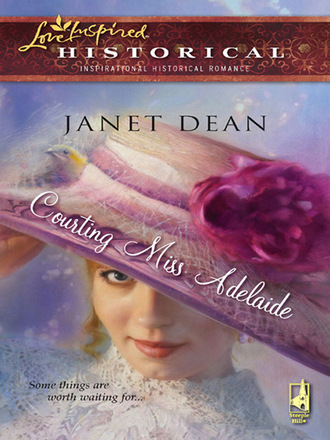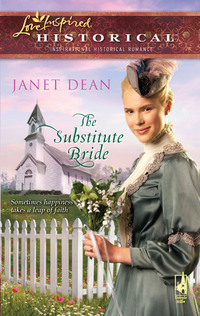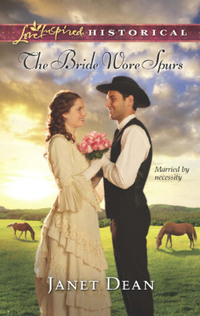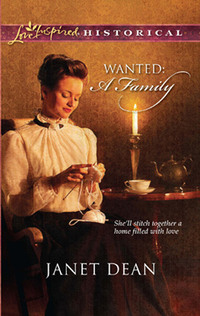
Полная версия
Courting Miss Adelaide

“What you need is someone to teach you and your readers style,” Adelaide said.
Charles smirked. “I can’t see farmers reading it.”
“Well, no, but farmers’ wives spend money in town—”
“On birds for their heads,” he said.
She raised her chin. “Are you making fun of me, Mr. Graves?”
“Not at all, Miss Crum. Not at all.”
“Good, because I’d like to write a fashion column for the paper.”
“A fashion column isn’t a bad idea. Could you give me a sample—say, by Monday?”
“I’ll deliver it personally.”
He nodded. “Are you always this efficient?”
“I take my work seriously.”
“Ah, a woman after my own heart.”
The words ricocheted through her and left a hitch in her breathing, a huge knot in her stomach. Dare she hope for something too important to consider?
MILLS & BOON
Before you start reading, why not sign up?
Thank you for downloading this Mills & Boon book. If you want to hear about exclusive discounts, special offers and competitions, sign up to our email newsletter today!
SIGN ME UP!
Or simply visit
signup.millsandboon.co.uk
Mills & Boon emails are completely free to receive and you can unsubscribe at any time via the link in any email we send you.
JANET DEAN
grew up in a family that cherished the past and had a strong creative streak. Her father recounted wonderful stories, like his father before him. The tales they told instilled in Janet a love of history and the desire to write. She married her college sweetheart and taught first grade before leaving to rear two daughters. As her daughters grew, they watched Little House on the Prairie, reawakening Janet’s love of American history and the stories of strong men and women of faith who built this country. Janet eagerly turned to inspirational historical romance and loves spinning stories for Love Inspired Historical. When she isn’t writing, Janet stamps greeting cards, plays golf and bridge, and is never without a book to read. The Deans love to travel and to spend time with family.
Janet Dean
Courting Miss Adelaide

Bear with each other and forgive whatever
grievances you may have against one another.
Forgive as the Lord forgave you.
—Colossians 3:13
To my critique partner, Shirley Jump—
her slashing red pen, savvy advice and endless
support helped me become the writer
I am today. To David Highway, President of
the Hamilton County Historical Society—
a big thanks for his assistance with my
research. To my late parents, who never
stopped believing I’d attain my dream.
To my husband—a good man, a wonderful
father and the love of my life.
Contents
Prologue
Chapter One
Chapter Two
Chapter Three
Chapter Four
Chapter Five
Chapter Six
Chapter Seven
Chapter Eight
Chapter Nine
Chapter Ten
Chapter Eleven
Chapter Twelve
Chapter Thirteen
Chapter Fourteen
Chapter Fifteen
Chapter Sixteen
Chapter Seventeen
Chapter Eighteen
Chapter Nineteen
Chapter Twenty
Chapter Twenty-One
Questions for Discussion
Prologue
From the March 1, 1897, edition of The Noblesville Ledger:
WANTED: HOMES FOR CHILDREN
NOBLESVILLE—A company of homeless children from the East will arrive in Noblesville, Indiana, on Saturday, April 13. These boys and girls of various ages have been thrown friendless upon the world. The citizens of Noblesville are asked to assist the agents of the Children’s Aid Society in finding good homes for the children.
Persons requesting these children must first agree to treat the children as members of their family, promising to feed, clothe, send them to school and church and Sunday School until they reach the age of seventeen.
Applications must be made to and approved by the local committee. Interviews will be held on Saturday, March 30, in Judge Willowby’s chambers at the Noblesville County courthouse. The following well-respected citizens have agreed to sit on the local committee: C. Graves, J. Sparks, T. Paul and M. Wylie.
Distribution will be made at the Ward schoolhouse on April 13 at 10:30 a.m.
Chapter One
Noblesville, Indiana, spring of 1897
Adelaide Crum stepped to the open door and peered into the judge’s chambers. Her heart hammered beneath her corset. Now that the moment she’d waited for had arrived, her courage faltered. She considered turning tail and scurrying home. But then she remembered the quiet, the emptiness of those rooms. She closed her eyes and sent up a simple prayer. I don’t ask often, Lord, but I’m asking today. Please, let them say yes.
Squaring her shoulders, she crossed the room, then sat on one of the two chairs and faced the four men who held her future in their hands. To fill the vacant chair with something, she laid her purse on the seat, a seat that mocked her singleness.
Mr. Wylie, a large man who owned a farm north of town, folded his sausagelike fingers on the table. “I’ve dropped my wife off in front of your shop more times than I can count, Miss Crum.” He chuckled. “Usually costs me, too.”
She smiled a thank-you for his business.
Beside the farmer sat Mr. Sparks, the town banker. The little tufts of hair fringing his bald head reminded Adelaide of a horned owl. “Perhaps you’d better tell us why you’ve come, Miss Crum. Do you have recommendations for this committee?”
“I’ve come for myself.” Adelaide laid a calming hand on her midriff to offset the growing urge to deposit her breakfast on the table in front of her. “To ask for a child.”
Mr. Paul’s nostrils flared, giving him an air of disdain, not a cordial expression for an elder at her church and the town’s Superintendent of Schools. “For yourself? You’re a single woman, are you not?”
“Yes, but—”
“I hope you can appreciate how unfair it would be to place a child in your home, where, if something happened to you, the youngster would be homeless.”
“I’m in excellent health, Mr. Paul.” She’d take this opening to plead her case. “I have sufficient funds to meet a child’s needs. And a skill to teach, enabling a girl to make her own way. When I pass on, I’d leave her my worldly assets.”
She took a deep breath, pulling into her lungs the overpowering scent of Mr. Paul’s spicy cologne. “I’ll see she’s educated and brought up in the church. I’ve lived in Noblesville all my life. You remember seeing me in Sunday school, Mr. Paul. Mr. Sparks, I bank with you. Numerous people in town can vouch for my character.” She’d rehearsed the words countless times and they tumbled out in a rush.
One man remained silent. Charles Graves. Her gaze darted to the new editor of The Noblesville Ledger, who sat at the far right of the table. Rumor had it he was single. Mr. Graves’s generous mouth softened the square line of his jaw. Deep grooves marred his forehead, an indication, perhaps, that a newsman’s life wasn’t easy. And yet the cleft in the middle of his chin gave him a vulnerable air. Undeniably handsome, broad-shouldered and tall, he overshadowed the other men in the room.
He stared as if scanning the core of her, possibly looking for a flaw that would declare her unfit to rear a child. Their gazes locked and the intensity of his inspection sent a shiver down Adelaide’s spine.
Mr. Paul rose and came around the table. “Miss Crum, I believe your character to be without blemish. I’m sure you can do all you say. However, the fact remains you’re a maiden lady with no experience dealing with children.”
“We have childless couples begging for a baby,” Mr. Wylie added. “Couples, with acres of ground and not enough hands to till it, seeking boys. We have tried-and-true parents who’ve shown their abilities by rearing their own children.”
Heat climbed Adelaide’s neck. Fiddlesticks! If I’d had the good fortune to be a tried-and-true parent, I wouldn’t be here.
How frustrating to have men make all the decisions, as they always had in Noblesville. She might be single, but that didn’t mean she couldn’t bring up a child. She had the capacity, the intelligence, to sit on a committee like this one, to help make important decisions. Why couldn’t men see women had a unique perspective with value, married or not?
“Gentlemen, I’ve proven my abilities by running a successful business while I tended to my sick mother. I can rear a child and do it well.”
Her gaze collided with the editor’s. Did she see compassion in his warm brown eyes?
Mr. Wylie pointed to the paper in front of him. “We’ll only be getting twenty-eight children, mostly boys. We’re unable to meet the demand. I hope you understand.”
She understood all right. They didn’t think she could handle the job. Lord, give me the words to convince them.
“Gentlemen, please hear me out. The fact I’m unmarried will give me more time to devote to a child. I realize boys are needed in the fields. My desire to rear a girl won’t interfere with that.” She bit her lower lip. “I’d be a good mother, if you’d give me a chance.”
Arms folded across his chest, Mr. Paul leaned toward her. “The Children’s Aid Society does not seek single parents, except in the rarest of cases. If we weren’t overrun with applicants, perhaps we might consider your marital status more leniently.”
She searched their faces for help. Mr. Paul’s features appeared carved in granite. Mr. Sparks fidgeted in his chair. Mr. Wylie gave her a kind look, but showed no sign of intervening.
Mr. Graves wore a slight frown. He cleared his throat. “Miss Crum made some valid points about her suitability. Any chance, gentlemen, of stretching the rules?”
Adelaide held her breath. Oh, please, God, change their minds.
Mr. Paul tapped the edges of the paperwork in his hand. “Charles, we aren’t here to make history. Just to make certain these children have good homes. Besides, placing a child in a fatherless home is unscriptural.”
Mr. Graves arched a brow. “Would that be Third Timothy Four?”
Adelaide knew her Bible. There was no Third Timothy. Surprised at the jab and pleased he knew the Scriptures, she smiled at the editor. He winked. Warmth spread through Adelaide like honey on a hot biscuit. Could this handsome, successful man be on her side?
Mr. Paul harrumphed. “Perhaps you find that funny, Mr. Graves, but I do not. The Bible makes it clear the man is the head of the family. It isn’t right to put a child into a home with no paternal guidance.”
Adelaide tightened her hands into fists. Mr. Paul’s fifteen-year-old son Jacob perpetually terrorized the town. A few months ago, she’d had to report him to the sheriff after she’d caught him setting fire to Mr. Hudson’s shed. The boy had run off and thankfully, she’d been able to douse the flames. Yet, Mr. Paul had the gall to preach paternal guidance. “I had no father growing up. I’m no worse for it.”
Mr. Paul leaned forward and patted her shoulder. “I didn’t mean to insult you. There are circumstances over which we have no control, but that’s not the case here.”
Adelaide glanced at Mr. Graves. His gaze had narrowed but he said nothing. What had she expected? He didn’t know her. None of them really did. They saw a spinster—nothing more.
“I’m sorry we can’t help you.” Mr. Wylie stood and walked toward the door.
She wanted to scream, but that would only prove her to be a hysterical female unfit to rear a child. She hated being powerless. Hated being at their mercy. Hated being unable to change a thing.
Adelaide grabbed her purse and rose. At the door, she looked back one last time, searching for some sign of softening on their faces, but no miracle came. Tears stung her eyes, but no matter what, she would not let them see her cry.
Mr. Wylie opened the door. “I’m sorry,” he murmured again.
Unable to speak, she nodded an acknowledgment. Head high, she strode through the door into the waiting area, past her staring neighbors, and into the courthouse corridor, holding herself together with the strength of a well-honed will.
Every step pounded in her head, reiterating again and again and again. I failed. I failed. I failed.
In the hallway, she sidestepped a couple blocking her path.
“Please, Ed, we can’t replace our boy. I’d like a girl—”
“A boy is what we agreed on,” the man snapped. “I’m trying to put this family back together, and all you do is whine.”
The woman’s gaze darted to Adelaide, and then dropped to the floor. Frances. Before Adelaide could greet her, Frances followed her husband to the door. Ed turned to open it, giving Adelaide a glimpse of his face. Anger blazed in his eyes. Then, like a shade dropping over a window, he controlled his expression, leaving his countenance smooth and pleasant.
“Miss Crum,” he said, giving her a friendly nod.
Adelaide couldn’t believe this irate man could be the same person who’d picked her up after a childhood tumble and declared she’d be fine. All these years later, she still remembered his kindness, the gentle way he’d cleaned her scrapes with the red bandanna he’d dampened at a nearby pump.
Losing their son must have changed him. Whatever the cause, if Ed carried that much anger, the Drummonds shouldn’t be considered for a child. But they probably would be, since marriage seemed to be the committee’s only condition.
The pain of the rejection tore through her. Adelaide bolted for the entrance. She shoved open the heavy door, gulping in air. As she started down the steps, low-slung clouds released their moisture, spattering her face as if nature shed the tears she would not weep. Lightning zigzagged overhead and thunder rumbled, then the sky burst under the weight of its watery load.
In the deluge, her sodden garments grew heavy, but didn’t slow her progress. With both hands, she hiked her skirts and hustled across the street. As she trudged to the back of her shop, closed for this momentous day, the mud grabbed at her shoes. Her shoulders heaving with exertion, she pried the dirty shoes from her feet and dropped them outside the door, indifferent she’d ruined their fine leather. Then climbed the stairs to her quarters above the shop.
She removed her soggy skirt, and then wilted onto the bed, dropping her hat on the floor. A curtain of rain veiled the window, darkening the room. Her mother’s words echoed in her head. It’s a man’s world, Adelaide. If you think otherwise, you’re in for a rude awakening.
Today, four men had found her unworthy to rear a child. She’d built a successful business, had taken care of herself and her invalid mother, and all without a man’s help. But what she wanted most, a child and family, she couldn’t have without a man, without a committee of men.
“Why, Lord? Why was the answer no?” No reply came.
There would be no little girl to sew for, no little girl to love. No little girl, period.
A sob ripped through her, then a piercing wail. She burrowed her face in the pillow to muffle the sound, but then remembered she had no one to hear. No one to see. No one to care.
The dam she’d built to hold back her emotions crumbled, releasing a flood of tears. As she wept, spasms shook her body until, long minutes later, exhaustion quieted her. Every part of her echoed with hollowness, emptiness. For the first time in her thirty-one years, she felt old. Old, with the hope squeezed out of her.
But then she remembered Mr. Graves’s wink.
Somehow the gesture had united them against the others. He appeared to have confidence in her ability to mother a child. Like butter on a burn, the thought soothed her wounded heart.
But even if no one else did, Adelaide had faith in herself. And even a stronger faith in God. God would sustain her.
What if the committee’s decision wasn’t God’s final word?
At the thought, Adelaide sat up on the bed. Her chest swelled with hope and her mind wrapped around a fresh determination. The committee’s rules weren’t etched in stone like the Ten Commandments. She’d never believed all the conventions in her world concurred with God’s plan. Until she knew in the core of her being God didn’t want her to mother a child, she would not give up hope. She would believe a child waited for her, waited for the comfort of Adelaide’s arms.
Charles couldn’t get the memory of Miss Crum out of his mind. He wished he hadn’t agreed to sit on this committee. He wanted no part in impersonating God. No part in causing the kind of pain he’d read on Miss Crum’s face.
If Charles understood anything, he understood pain.
He forced his attention back to the discussion, chagrined to discover everyone looking at him, waiting for him to speak. “I’m sorry. Would you repeat that?”
“We were saying the Drummonds have the ability to train a boy in farmwork. They lost their only child to a stove fire a few years back. A terrible tragedy.”
Charles examined the burly man and his timid wife. From the little he’d listened to, Mr. Drummond had done all the talking. The man seemed affable enough, but during the interview, his wife had avoided eye contact. Perhaps she was merely shy. “Mrs. Drummond, you haven’t said. Do you want a boy, too?”
She looked to her husband, hesitating a moment. “I’d be open to a girl.” Her voice quavered, but for the first time she met Charles’s eyes. He saw a flicker of hope, and something else, something that gnawed at his memory. Before he could identify it, she lowered her gaze.
Mr. Wylie checked a list. “We’ve been told to expect a brother and sister. Would you be willing to take both of them?”
Mrs. Drummond’s gaze darted to her husband.
“How old are they?” Mr. Drummond asked.
“The boy is ten, the girl is, let’s see…” Wylie scanned a paper in front of him. “Seven.”
Mr. Drummond rubbed his chin. “Two pair of hands would be a help,” he said, considering. Then he smiled. “The missus would like a girl. We’ll take them both.”
“Excellent. We don’t want to split up siblings unless we have no choice.”
Mr. Drummond nodded. “Family means everything. Husband, wife…” He hesitated, his tone emotional. “Children. Nothing should divide a family.”
Mr. Wylie pushed the papers away and looked at Charles. “Any objections, Mr. Graves?”
The couple had the proper references, had said all the right words, but what did that prove? The entire exercise was ludicrous. But perhaps no more so than nature’s method of selecting parents guaranteed they’d be adequate for the job.
Yet some kind of sixth sense twisted a lump in his throat, made him hesitate, but just as quickly, he dismissed it. The others knew them, had greeted them warmly.
For the hundredth time he questioned why God, all powerful and all knowing, allowed unsuitable people to have children. He could only be certain about one thing. A child would be better off living in Noblesville than roaming the streets of New York City or living in one of its crowded orphanages. “I have none.”
“Good!” Mr. Wylie sent Mr. Drummond a smile. “I’ve been meaning to thank you, Ed, for helping fix the church roof.”
Ed nodded. “Glad to do it. We can’t expect the parson to hold an umbrella over his head while he’s preaching.”
While Wylie ushered the Drummonds from the room, Charles rose from his chair and crossed to the window. Even in the sudden downpour, the streets crawled with horse-drawn wagons and buggies. A typical Saturday, the day area farmers came to town to transact business or sell produce.
Like most county seats, the courthouse dominated the square, giving a certain dignity to the mishmash of architecture surrounding it. Noblesville was a nice little town. The decision to move here had been a good one. He’d been able to help his brother’s family and to bring The Noblesville Ledger back to life. That had been his father’s plan, but long before that revelation, owning a paper had been Charles’s dream, a dream he’d soon achieve.
His hand sought the telegram inside his pocket, notification his father had died peacefully in his sleep. Charles crushed the flimsy paper into a tight ball. Maybe now, he could put his past to rest.
He looked down the block to The Ledger, then across the street to Miss Crum’s millinery shop. She wanted a child to love, not a worker for her store.
Charles turned from the window. “I’m uncomfortable placing these youngsters to be laborers on farms.”
“Work never hurt anyone.” Wylie hunched forward, biceps bulging in his ill-fitting coat until Charles expected to hear ripping fabric. “Hard work builds strong bodies, sound minds.”
“Some of these ‘Street Arabs’ have been pickpockets and beggars,” Paul spoke up. “We’re saving them from a life of crime. If they work hard, they’ll make something of themselves.”
Charles’s thoughts turned to Miss Crum, an easy task. She stuck in a man’s mind like taffy on the roof of a tot’s mouth. Her eyes had captured him the first moment he saw her. A dazzling blue, they were deep-set under straight, slim brows, gentle, intelligent eyes. Her hair, the color of pale honey, had been smoothed back into a low chignon. Clearly a proper, straitlaced woman, the kind of woman who attended church on Sunday wouldn’t abide a man like him.
She’d shown a passel of courage facing the committee, even more strength of will when she’d left with her dignity pulled around her like a cloak. Of all the women he’d met that day, Miss Crum was the only one he felt certain would give a child the kind of home he’d read about in books.
He might have fought more for her, but thoughts of his widowed sister-in-law’s struggles had stopped him. Besides, to object further would have been a waste of time. He’d soon discovered folks in Noblesville resisted anyone who challenged their customary way of life.
By noon all the children had been spoken for. The actual selection of the orphans would take place in two weeks on the day of distribution. The four men shook hands, relieved they’d finished their job, at least for now. After the distribution, the committee had agreed to keep an eye on the children and their guardians as best they could.
A fearsome responsibility.
Outside the courthouse the men dispersed. Charles pulled his collar up around his neck and dashed to the paper in the pounding rain, splattering puddles with every footfall. Ducking into the doorway of The Ledger, he removed his hat, dumping water on his shoes, his spirits as damp as his feet.
His gaze shifted across the street to the CLOSED sign in the window of Miss Crum’s millinery shop. In the months he’d been here, he’d never seen the shop closed on a Saturday.
As he opened the door to the paper, he couldn’t help wondering what Adelaide Crum was doing right at this moment, after four men had dashed her hopes as surely as the sudden storm had wiped out the sun.
Chapter Two
Adelaide woke with a start, bolting upright in bed. Something important was to take place today. Then the memory hit and she sank against the pillows. The children would arrive today.
For her, another ordinary day; for twenty-eight couples, this day had blessed them with a child.
The past two weeks, she had relived the meeting with the committee numerous times, trying to see how she could have convinced them. Wasted thoughts. Wasted hopes. Wasted tears.





